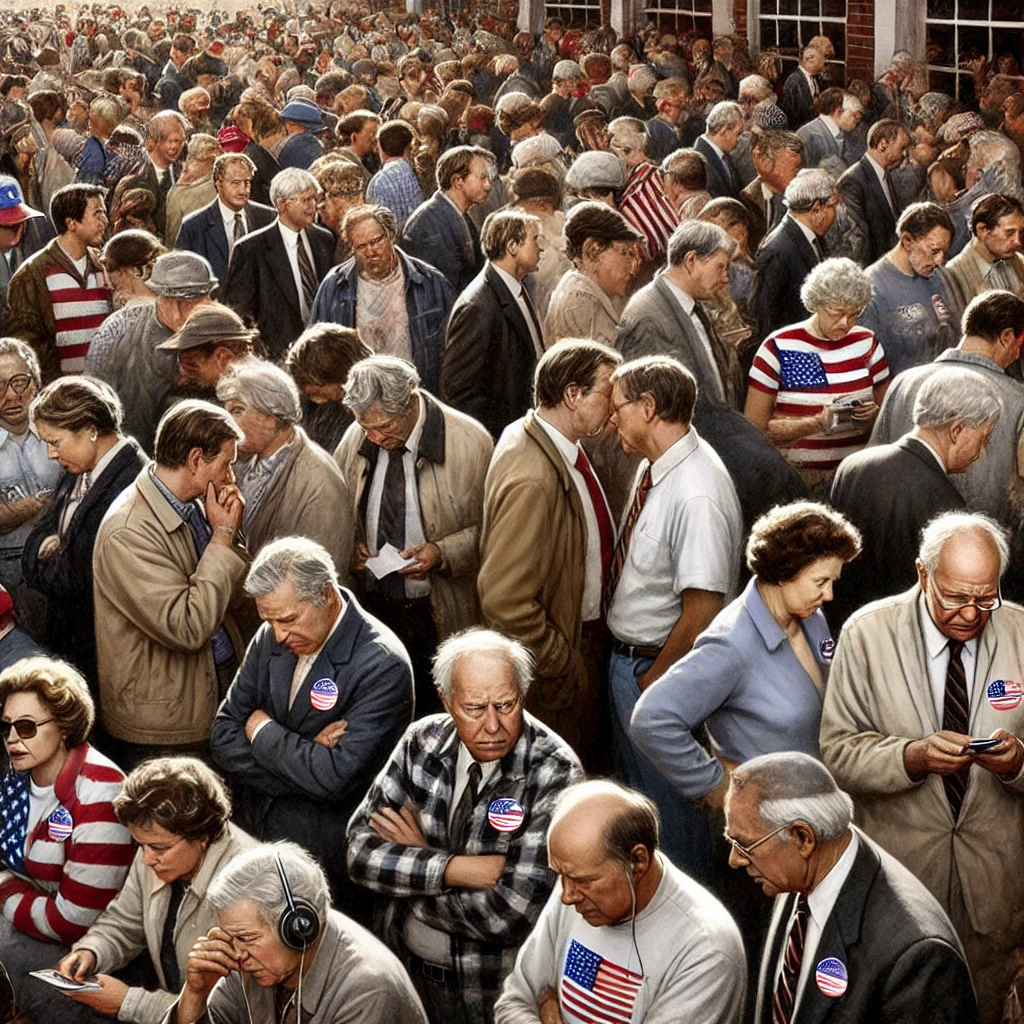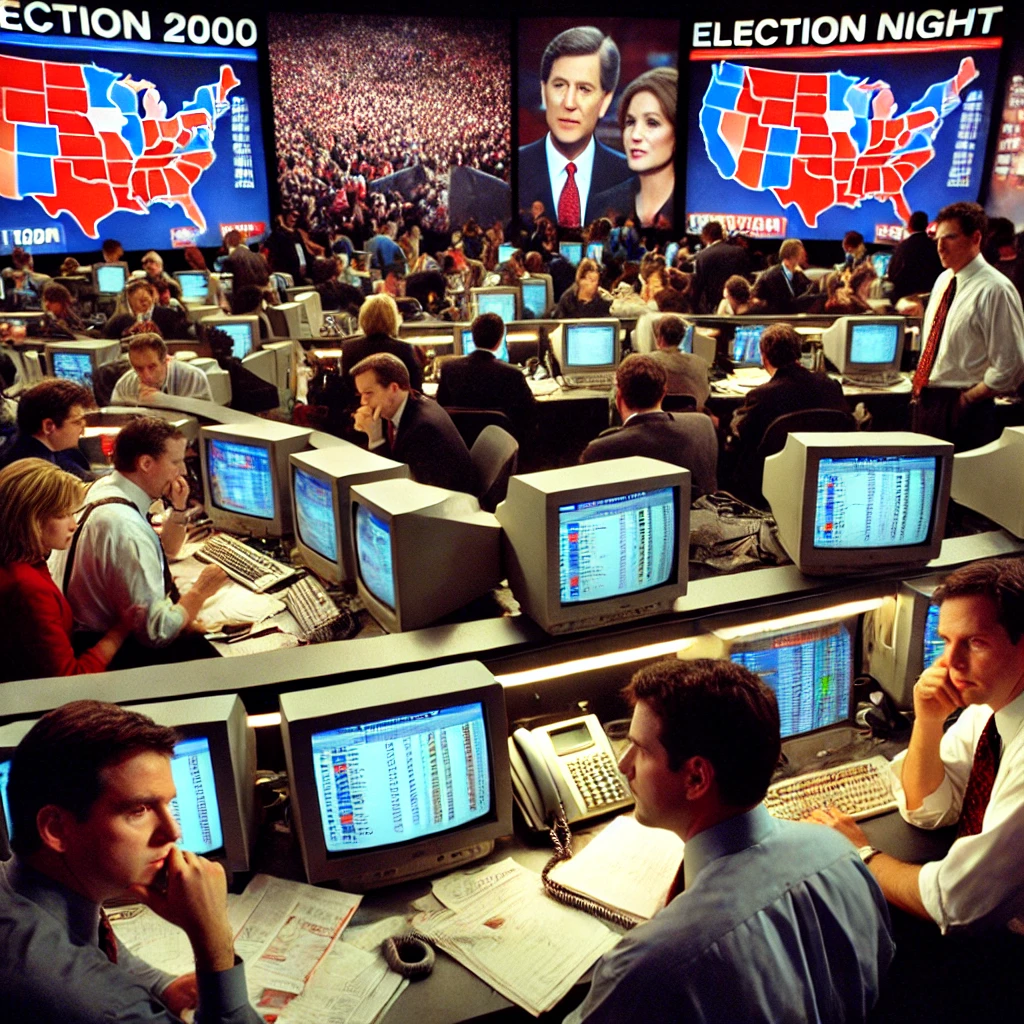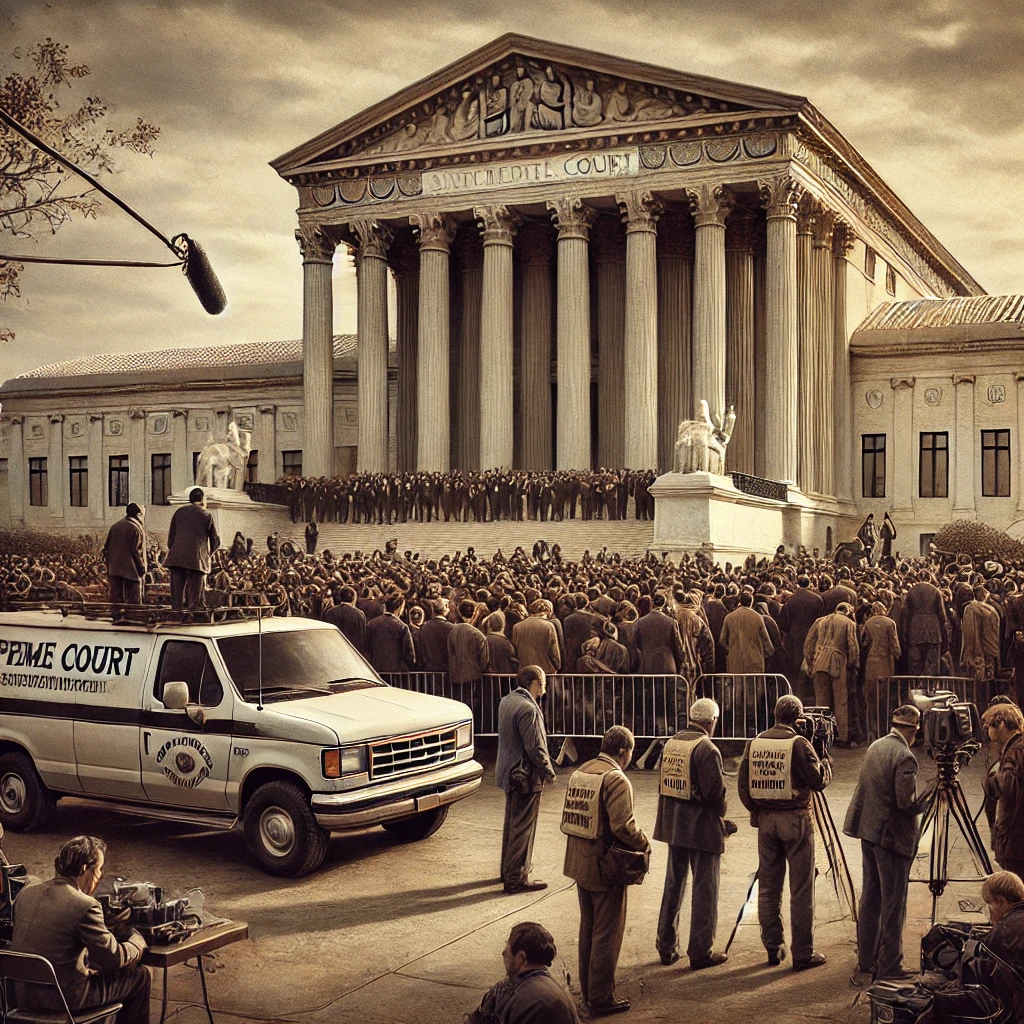On November 7, 2000, the United States held a presidential election that would become one of the most controversial and contentious in the nation’s history. Democrat Al Gore and Republican George W. Bush faced off in a closely watched race that ended in a statistical tie, leading to a protracted legal battle over the results in Florida. This election not only tested the electoral process but also raised questions about voting rights, state governance, and the integrity of the American democratic system.

The Tight Race
As the polls closed on election night, it quickly became clear that the outcome would hinge on Florida, where Bush and Gore were in a virtual deadlock. Initial reports suggested that Gore had won the state, only to be followed by reversals and conflicting data that left the nation in suspense. The stakes were high, as Florida’s electoral votes were crucial for both candidates to secure victory.
As the results unfolded, the situation escalated into a legal and political crisis. Gore called for a recount of the votes, emphasizing the importance of every citizen’s vote being accurately counted. This prompted a series of court battles as both campaigns sought to contest the results. The situation intensified with widespread media coverage, and the nation watched closely as the fate of the presidency hung in the balance.

The Supreme Court’s Decision
The legal battle culminated in a landmark Supreme Court case, Bush v. Gore, which was decided on December 12, 2000. The Court ultimately ruled that the manual recounts of ballots in Florida violated the Equal Protection Clause of the Fourteenth Amendment, effectively halting the recount and awarding Florida’s electoral votes to George W. Bush. This controversial decision effectively determined the outcome of the election, with Bush winning the presidency by a narrow margin.
The implications of this election extended far beyond the immediate results. The controversy surrounding the 2000 election brought attention to issues related to voting systems, ballot design, and the electoral process itself. It also sparked discussions about voter disenfranchisement, particularly among minority communities, leading to calls for reform in election laws and procedures.
Lasting Legacy
The events surrounding the 2000 presidential election left an indelible mark on American politics and the electoral process. It highlighted vulnerabilities in the voting system and underscored the need for improvements in how elections are conducted. In the years following the election, various measures were implemented to enhance voting accessibility and security, including the Help America Vote Act of 2002.

As we reflect on November 7, 2000, we recognize the election as a turning point in American democracy. The controversies and legal battles that ensued served as a reminder of the complexities of the electoral process and the importance of ensuring that every vote counts. The legacy of the 2000 election continues to influence political discourse today, emphasizing the ongoing need for vigilance in protecting democratic principles and the integrity of elections.
